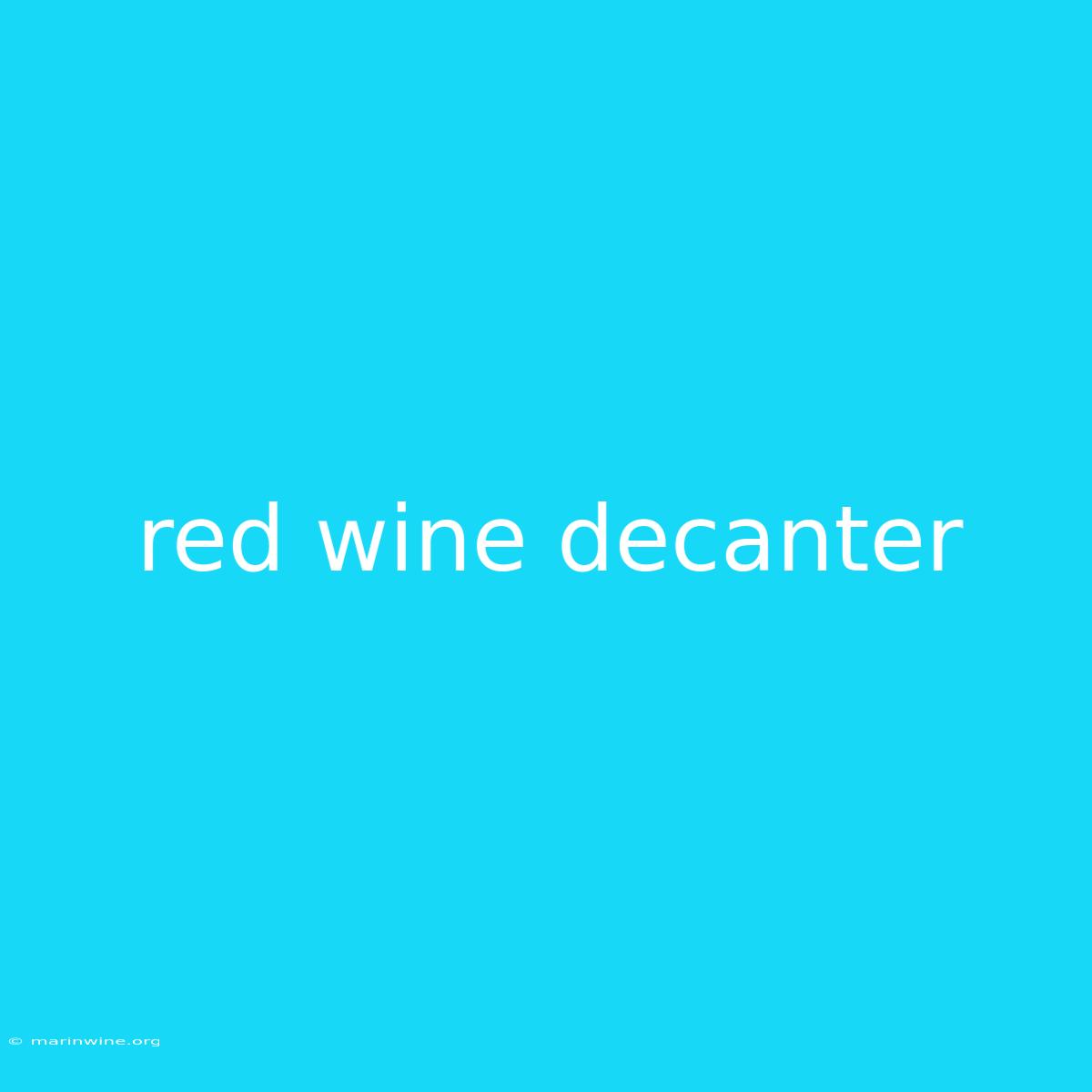Unlocking the Secrets of the Red Wine Decanter: A Guide to Enhancing Your Wine Experience
Editor's Note: This article explores the fascinating world of red wine decanters and how they can elevate your wine enjoyment.
The Significance of Decanting:
For many wine enthusiasts, decanting is a crucial step in the wine journey. It's more than just a decorative element; it's a process that unlocks the full potential of a red wine, especially young, complex, and tannic wines. By gently exposing the wine to oxygen, we initiate a chemical reaction that softens tannins, allowing the wine to breathe and release its complex aromas and flavors.
Why Decant?
- Taming the Tannins: Tannins, naturally occurring compounds in red wine, can be harsh and astringent, especially in young wines. Decanting helps to mellow these tannins, making the wine smoother and more enjoyable.
- Unleashing the Aromas: As the wine breathes, it releases its full bouquet of aromas, unveiling layers of complexity that were previously hidden.
- Separating the Sediment: Older wines often develop sediment at the bottom of the bottle. Decanting allows you to carefully pour the wine, leaving the sediment behind and ensuring a cleaner taste.
Choosing the Right Decanter:
The world of decanters offers a wide range of styles and materials, each influencing the wine's interaction with oxygen.
- Crystal Decanters: These are the traditional choice, often showcasing intricate designs and exceptional clarity. They are known for their elegance and ability to enhance the visual appeal of the wine.
- Glass Decanters: More affordable than crystal, glass decanters still provide excellent aeration and offer a range of shapes and sizes.
- Decanters with Aerating Features: Some decanters incorporate features like built-in aerators, which can accelerate the oxidation process and enhance the wine's flavor profile.
Decanting Techniques:
- Proper Handling: Hold the decanter by the base to avoid warming the wine with your hands.
- The Pour: Carefully pour the wine down the side of the decanter to minimize aeration and prevent sediment from entering.
- Decanting Time: The time needed for decanting varies based on the age and type of wine. Young wines typically need 30 minutes to an hour, while older wines might benefit from a shorter decanting time.
Decanting: More Than Just a Wine Ritual
While decanting might seem like a formal process, it's ultimately about enhancing your wine experience. It's an opportunity to engage your senses and appreciate the complex evolution of wine as it breathes. By understanding the benefits of decanting and selecting the right decanter for your needs, you can truly unlock the secrets of the red wine and elevate your enjoyment to new heights.
Key Takeaways:
| Benefit | Description |
|---|---|
| Taming Tannins | Softens harsh tannins, making the wine smoother |
| Unleashing Aromas | Releases complex aromas and unveils hidden layers of flavor |
| Separating Sediment | Removes sediment from older wines, ensuring a cleaner taste |
Remember, decanting is not always necessary. Many younger wines are ready to enjoy right from the bottle. However, for those special bottles that you want to fully experience, decanting is a wonderful way to elevate your wine journey.

